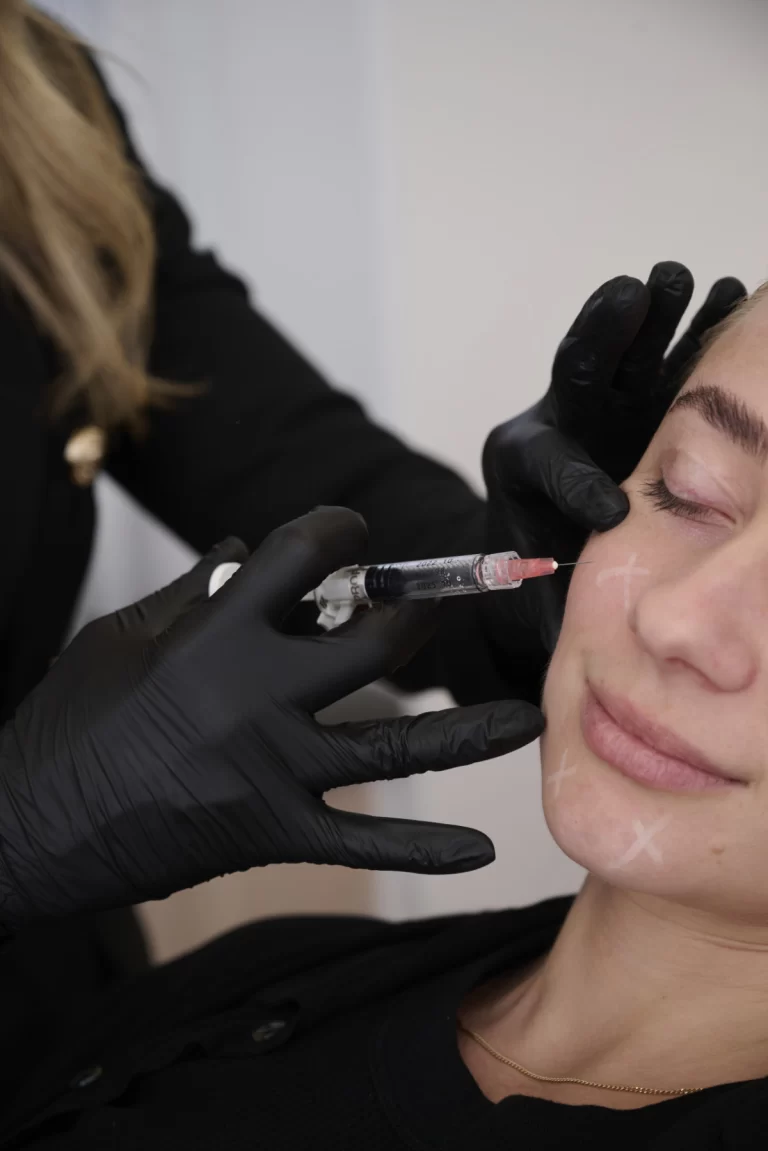Is My Skin Dry or Dehydrated?
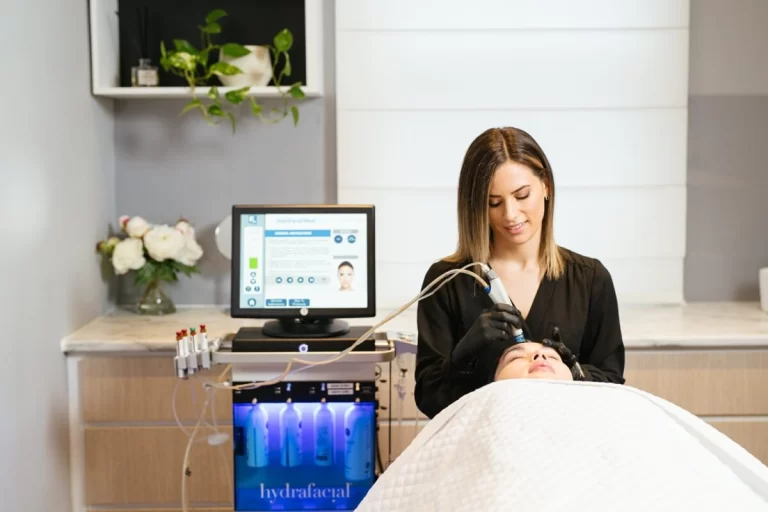
Are you unsure whether your skin is dehydrated or dry?
Sometimes little signs such as feeling like you can’t go without a moisturiser because your skin feels so tight after showering, or experiencing redness and sensitivity to the skin may be an indication of dry or dehydrated skin.
We see this so often in clinic, where our clients get confused whether their skin is dry or dehydrated. So I’m here to clear up the confusion and offer advice on which products and treatments are best for each condition.

Dehydration
Dehydration occurs when there is a deficiency of water in the uppermost surface layers of the skin. My clients often hear me call this Transepidermal Water Loss (TEWL).
What causes your skin to dehydrate?
Your skin is the largest organ of the body, therefore it is the last organ to receive the nutrients it needs, which often ends up causing the superficial skin cells to become dehydrated and dull. All skin types can suffer from dehydration, even oily.
A lot of the time, clients with oily skin tell me they only cleanse as they are too scared to clog the skin with creams. However, sometimes we can cause more harm than good by avoiding serums and moisturisers with oily skin, as you can end up with stagnant oil in the t-zone which results in congestion and an impaired barrier function on the cheeks. Let me try to explain this…
Imagine a bath with candles sitting on the bottom, then filling the bathtub with water. The candles will float and move around the surface. This is the same as your skin.
Your t-zone naturally has more sebaceous glands, which produce oil that needs to be pushed out of the pores by water over the rest of the face, to create what we call our acid mantle (protective layer on the skin).
So when you don’t have this water present in the superficial layers of skin then the oils become stagnant and will eventually also cause larger pores.
Other factors that can cause dehydrated skin are seasonal changes, air conditioning, excessive sweating, medications, unhealthy diet along with caffeine and alcohol consumption.
Signs and symptoms
Signs of dehydration can include skin tightness, tautness, flaking, dullness, stinging, itchiness and sensitivity.
After a shower or you wash your face and you haven’t yet applied your skincare and your skin feels tight, that can be a sign of dehydration.
Another good way to determine whether you have dehydrated skin is the pinch test. I generally like to do this on the forehead and the cheek. Pinch a bit of skin gently, and look closely if it has a criss-cross, almost pavement like appearance to it, then that’s a good indication your skin is dehydrated.
Following this, pinch a little firmer and let go quickly and see how quickly it bounces back. If it bounces back soon after, that is good, but if it takes a little longer or creases easily, then that is another dehydration sign.
Treatments and products
When treating dehydration, you must look at your skincare as well as environmental factors.
Products that you will need to include in your routine will contain ingredients that assist in holding water within the superficial layers of the skin.
Hyaluronic Acid (HA) is an amazing ingredient to incorporate into your skincare regime. My favourite is the PCA Hyaluronic Acid Boosting Serum, which uses 3 different types of HA, making this product stand out above all other Hyaluronic Acid products on the market. The 3 types of HA are :
- Hyaluronic Acid Sodium Salt which has a higher molecular weight of HA which occludes the skin, attracting and holding 1,000 times its weight in moisture in the skin.
- Hydrolysed HA is a smaller molecular size, so it can penetrate through the skin to deliver deeper moisturisation.
- HA-Pro complex this PCA Blend assists in stimulating the production of your skin’s own natural Hyaluronic Acid. It delivers a 24 hour moisturisation.
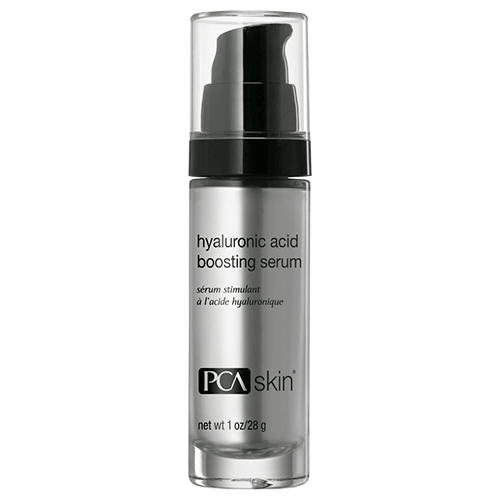
For the oily/dehydrated skins, I’d also recommend adding a moisturiser that hydrates, but isn’t too rich like Clearskin by PCA. This contains amino acids for hydration, Vitamin A to promote cell turnover and 4% niacinamide for brightening. This will hydrate and help you achieve that glow without looking oily.
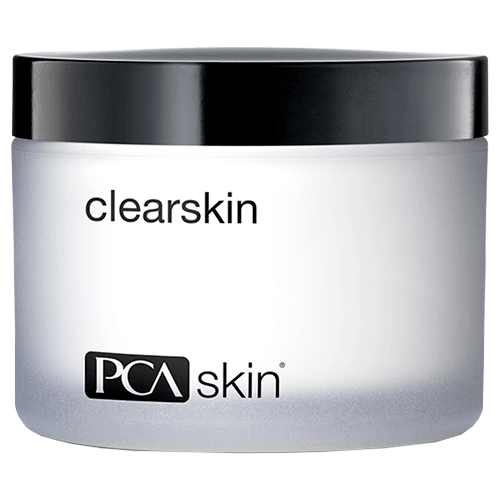
For the people that don’t produce as much oil then looking into a moisturiser a little richer like the Humidify from Cosmedix. This deep moisturising cream drip feeds hydration into the skin while boosting the integrity of the skin’s barrier function to help protect against dehydration.
Treatments that would help with hydration would be the Hydrafacial – I think the name says it all! This treatment will clean out the pores using AHAs and BHAs, then finish with a potent antioxidant solution to intensely hydrate the skin.
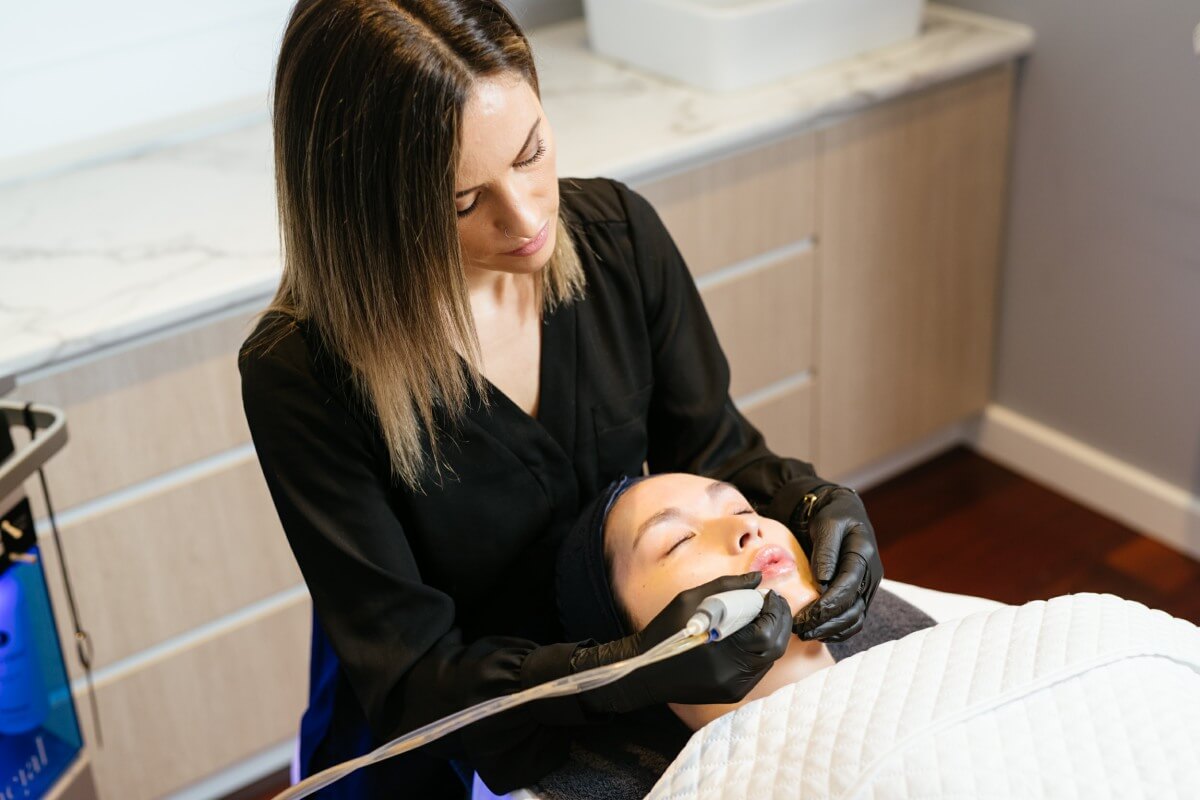
Another great treatment would be to have the AquaGold, with the use of dermal fillers which are a foundation of HA. Tiny channels in the needles penetrate the skin and infuse the ingredients 0.5mm into the skin to hold moisture and plumpen the skin, giving it a beautiful glow.
The same concept performed with Mesotherapy, where we use hydrating ampules to penetrate using a needling pen to push the ingredients into the different layers of the skin.
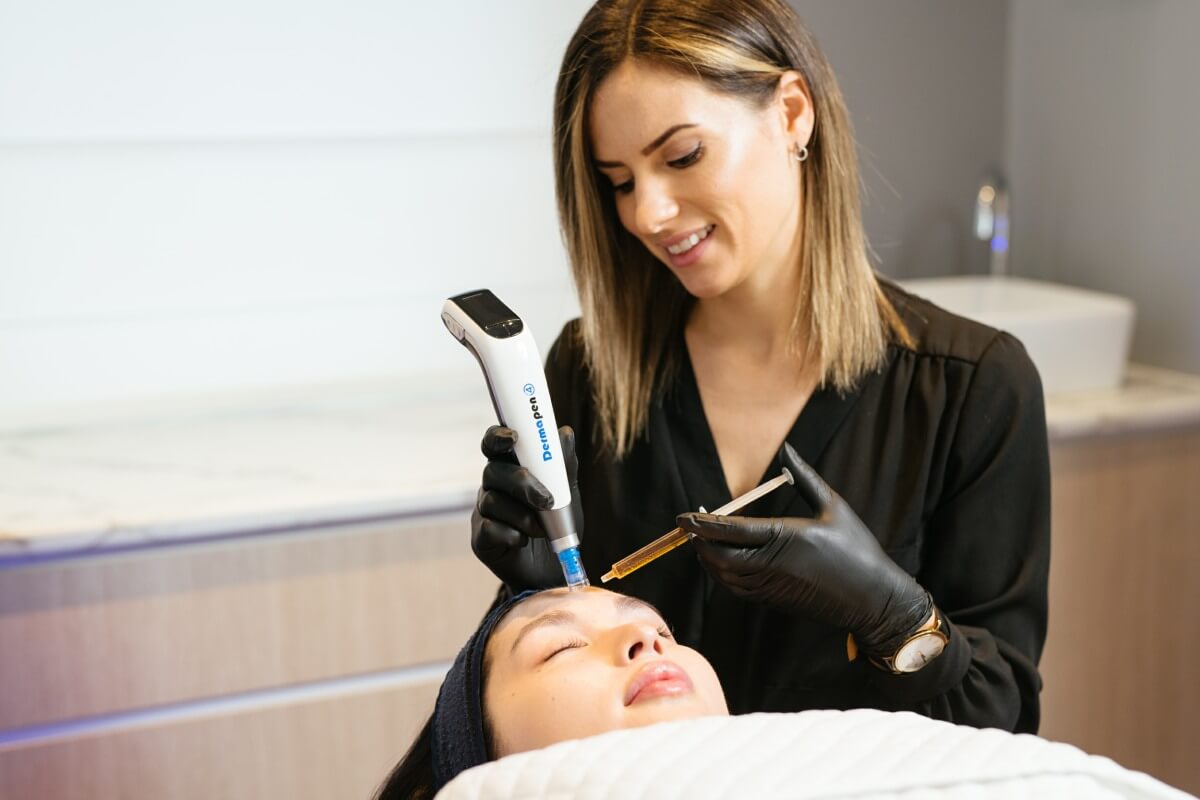
Environmental factors to look into would be rinsing the face off with water after a sweaty workout or after swimming in the ocean or chlorinated pool. Try not to have air conditioning directly on your face if possible.
Diet
Looking at introducing more water into your diet is essential for hydration. Adding in fresh produce that contains high water content such as melons, cucumber, tomatoes, apples and oranges can help. The Beauty Chef has a great elixir called Hydration that you can use post-workout to replenish your electrolytes to prevent dehydration after exercise.
Dryness
Dryness in the skin occurs when there is a low level of oil (opposed to water). Where the skin lacks moisture and becomes dry, flaking and irritation where you can develop conditions such as Eczema, Dermatitis or Psoriasis.
What causes skin to become Dry?
I find that in Western Australia, dry skin can be just as common in the summer months as it is in the winter months. Which is a little different to the eastern states. This is because we have a drier summer here with less humidity and strong winds.
We spend a lot of time in the ocean or in chlorinated pools which dry the skin out, along with the strong winds that can suck moisture out of the skin. And then we tend to top it off with being in air conditioning inside. In the winter months, we have hotter showers, heat pumps on and then walk out into cold winds, which all will cause the skin to dry out.
Using medications such as roaccutane and other acne pills can have a long term effect on the skin and cause dryness due to its ability to attack the sebaceous gland and stop production of oil. Other medications can also have an impact on dryness on the skin.
Exposure to harsh chemicals will dry out the skin, making it feel more sensitive and irritated.
Poor skincare choices can impact the protective layer of the skin causing dryness. This can be from over-cleansing and exfoliating with harsh products, or from the overuse of prescription Retinol (Vitamin A). Or it can become dry from not using any skincare at all to protect skin from the harsh environment.
One last factor that contributes to dry skin is age. As you age, your epidermis (surface layer of the skin) becomes thinner with a reduction of cell turnover. Additionally, your natural production of hyaluronic acid depletes, causing the skin to become dryer the older we get.
Signs and symptoms
Dry skin has a rough texture to it, fine lines and wrinkles become accentuated. Your skin may have dry flakes present on the skin surface.
The skin may feel irritated with redness and experience stinging and/or sensitivity when applying products to the skin, this is because there is no acid mantle to protect the skin. People that generally have dry skin tend to develop forms of dermatitis and eczema.
Treatments and products
Remedy is a beautiful new oil in the Cosmedix range which contains a revitalizing mix of oils that are rich in omega fatty acids, antioxidants and Vitamin E. This multitasking serum will leave your skin moisturised and nourished while protecting your skin from environmental factors.
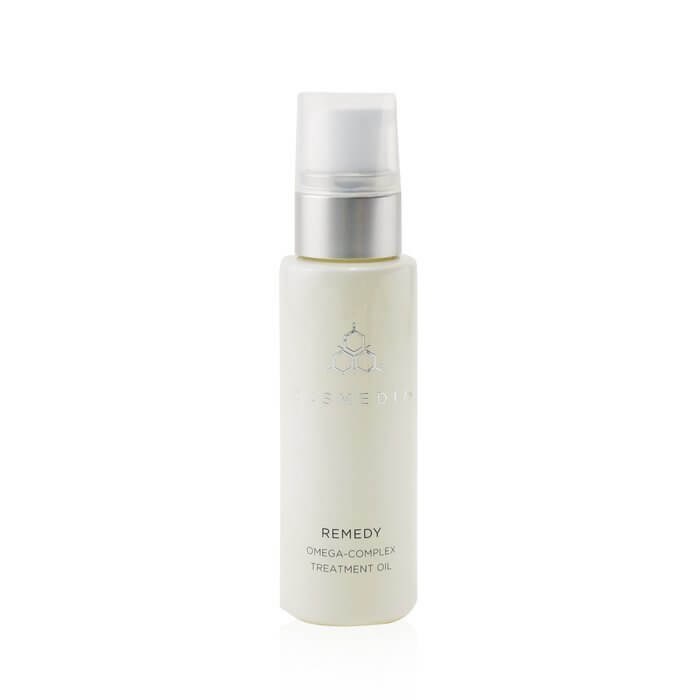
Hydraluxe is one of our favourite richer moisturisers in the PCA range. This luxurious cream will deeply hydrate the skin, improve moisture retention and skin barrier function, making this the perfect go-to for dry and dull skins.
In regards to treatments, we want to look at rebuilding the skin’s barrier function. A course of light peels will help to build the skin’s tolerance up.
After several peels and the use of home care products to gain healthy functioning skin barrier, we can introduce mesotherapy to infuse nutrients into the epidermis of the skin. This treatment creates tiny micro-channels in the skin to allow our specifically tailored solutions to be absorbed further into the skin which will result in more hydration and healthy oils present.
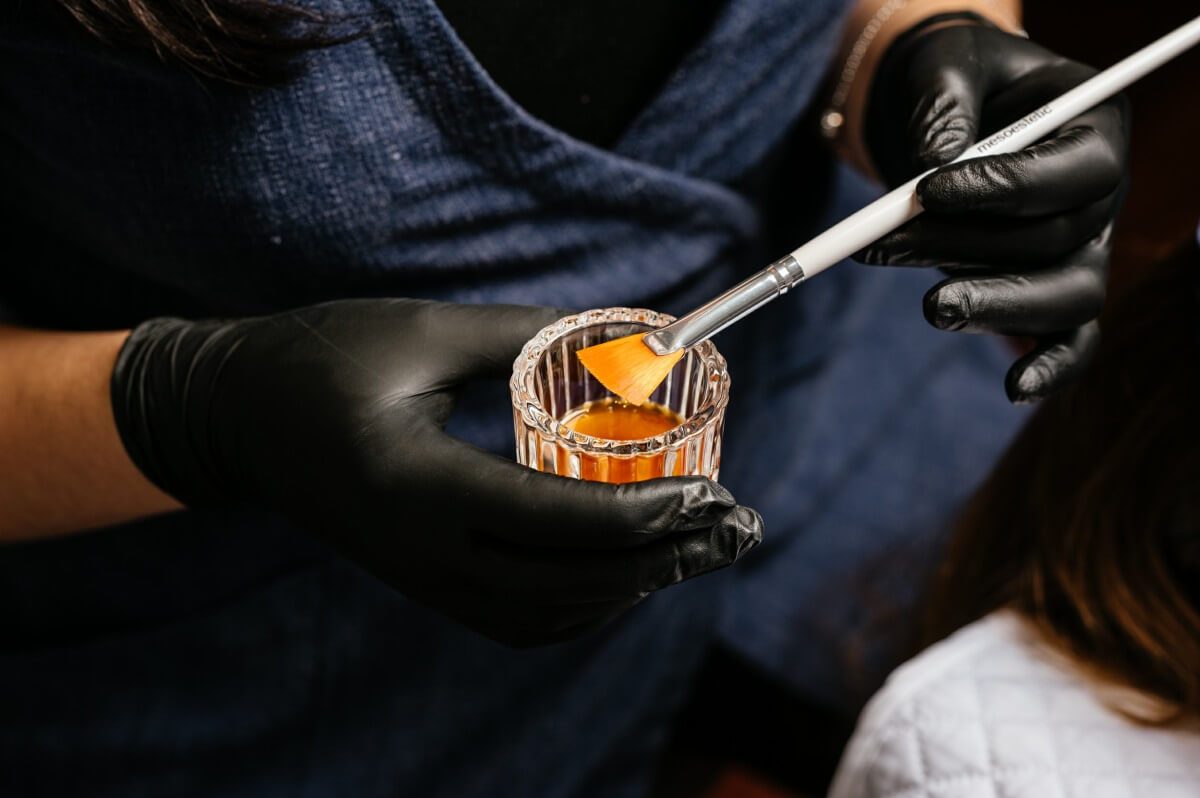
Diet
With diet, we need to look at adding in more healthy oils such as salmon, avocados and nuts. Taking a EFA (Essential Fatty Acid) supplement could be beneficial for dryer skin, as these are the building blocks essential for healthy cell membranes.
Our Beauty Chef range has just released a new citric flavoured elixir, which is designed for the dryer and inflamed skins containing Omegas 3,6, 7 and 9, Evening Primrose oil and Bio-Fermented Algae.
If you are suffering from a dry or/and dehydrated skin, or oily and dehydrated skin, you hopefully now know that combining the use of home care products, lifestyle changes and treatments specific to your condition can step you in the right direction to addressing it, and achieving a healthy functioning skin.
It can take time to rebuild the skin’s barrier function, so be patient and kind to yourself and you will start to see amazing results and feel more confident in your skin.



